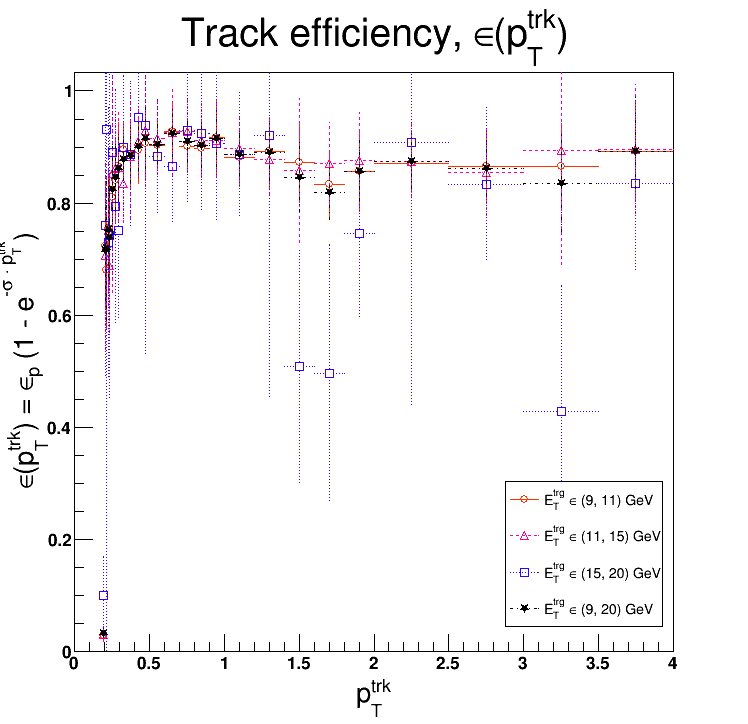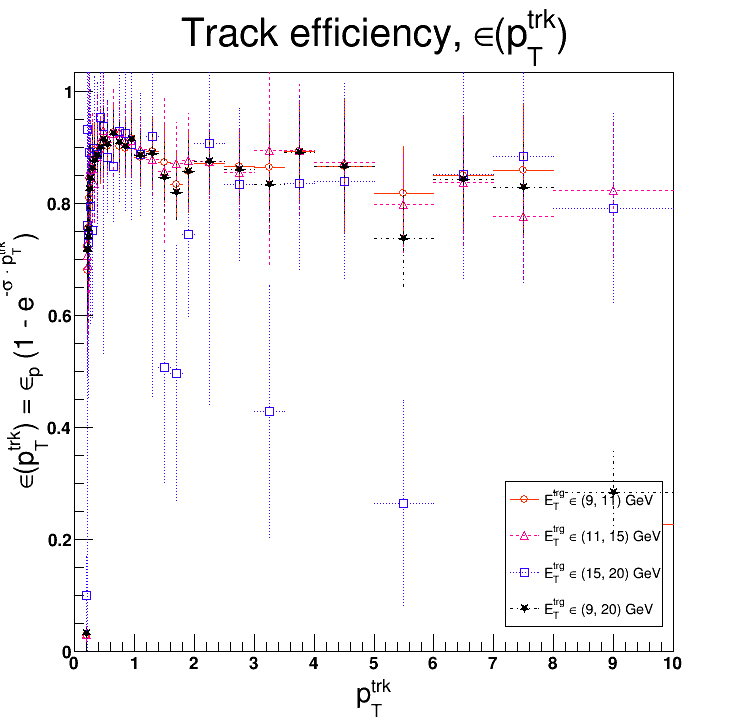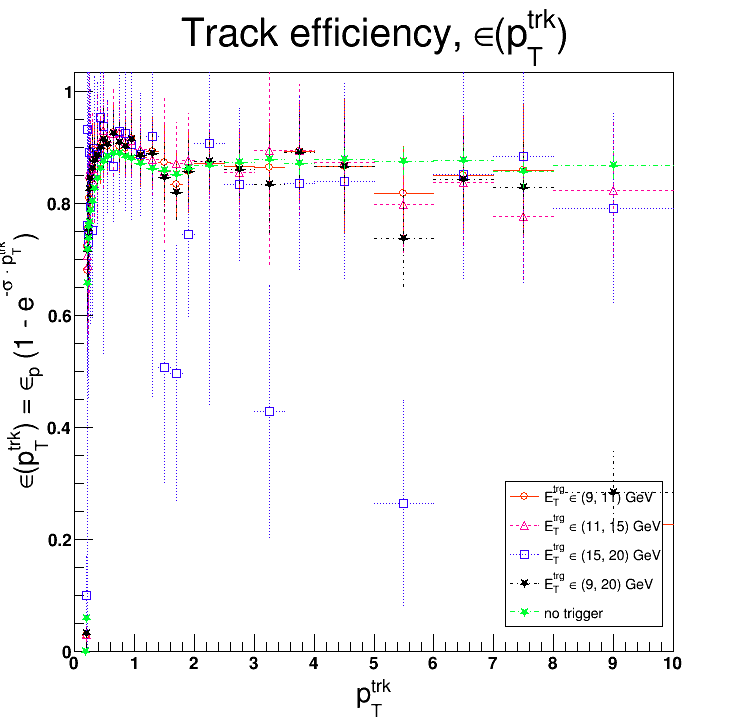Update 02.19.2019 -- Run 9 pp: track efficiency vs eTtrg
The next episode in my investigation of the run 9 tracking efficiency: how does it vary with trigger eT? The previous installments can be found here:
https://drupal.star.bnl.gov/STAR/blog/dmawxc/update-01072019-run-9-pp-detector-level-pythia-vs-embedding-vs-data-jet-spectra
https://drupal.star.bnl.gov/STAR/blog/dmawxc/update-01212019-run-9-pp-adjusting-response-pythia8
https://drupal.star.bnl.gov/STAR/blog/dmawxc/update-02042019-run-9-pp-comparing-tracks-pythia8-vs-embedding
https://drupal.star.bnl.gov/STAR/blog/dmawxc/update-02052019-run-9-pp-detector-level-pythia8-rebin-and-ratio-embedding
The plots below compare the tracking efficiency for different eTtrg ranges:



As you can see, statistics get pretty rough as eTtrg gets dialed up. The chaos at higher pTtrk is due to statistics and because I forgot to remove the particle-level trigger from the calculation. However, all 3 are (roughly) the same. But here are the same plots but with the non-triggered efficiency (the one I've been using up until now) added.



So requiring a trigger substantially improves the tracking efficiency...
- dmawxc's blog
- Login or register to post comments
